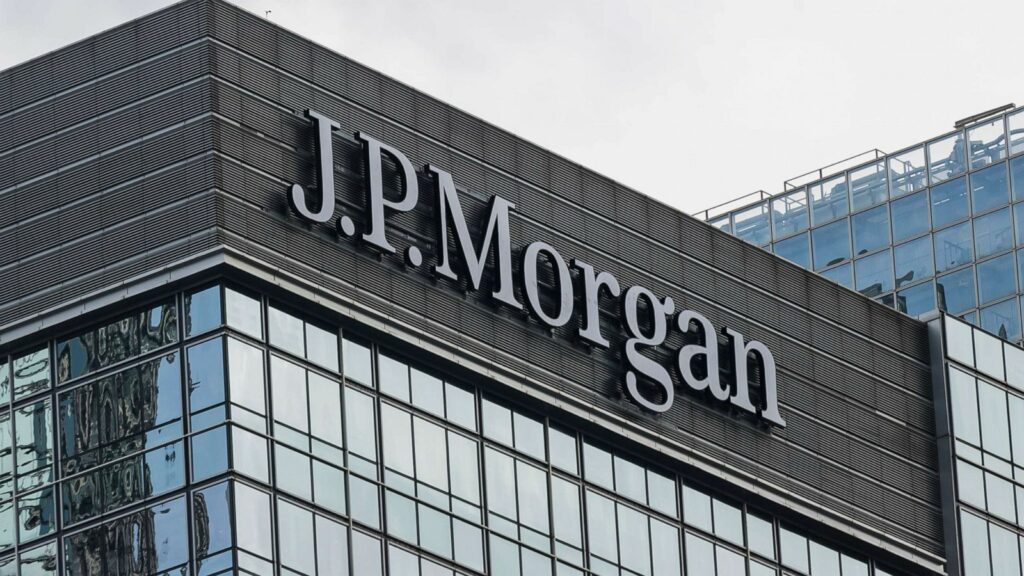In a recent interview on “Bloomberg Wealth with David Rubenstein,” Mary Callahan Erdoes, CEO of JP Morgan Asset & Wealth Management, revealed that a significant number of the bank’s clients view Bitcoin as an asset class and are eager to invest in it. Despite JP Morgan’s internal skepticism about Bitcoin’s classification as an asset class, the firm is focused on supporting client investment preferences.
JP Morgan Clients Want to Invest in Bitcoin
Erdoes acknowledged the growing interest among JP Morgan’s clients in Bitcoin and other digital assets during a conversation initially recorded on June 7. She described how the demand for Bitcoin is driving the bank’s approach to wealth management services.
“A lot of our clients say that’s an asset class, and I want to invest, and our job is to help them put their money where they want to invest,” Erdoes stated.
Her comments highlight a key shift in the financial industry, where traditional institutions are being compelled to accommodate the evolving preferences of their clients, even in the volatile realm of cryptocurrencies.
Bitcoin’s Classification Debate
While Erdoes acknowledged client interest, she reiterated that JP Morgan does not officially recognize Bitcoin as an asset class. She emphasized the bank’s cautious stance, citing concerns over Bitcoin’s price volatility and its unproven status as a store of value.
“We don’t view Bitcoin as an asset class, per se,” Erdoes said, implying that JP Morgan’s position on Bitcoin is shaped by its uncertainty and the speculative nature of the market.
JP Morgan’s Bitcoin Investment Strategy
Managed Bitcoin Funds for Affluent Clients
In April 2021, JP Morgan announced plans to launch an actively managed Bitcoin fund for its affluent clients. This move would make JP Morgan the second-largest bank, after Morgan Stanley, to offer direct Bitcoin exposure to its clients. The fund is intended to address the growing demand for Bitcoin investments while mitigating risks through professional management.
Indirect Bitcoin Exposure
While JP Morgan does not allow its wealth management clients to make direct Bitcoin investments, it facilitates indirect exposure through investments in companies like:
- MicroStrategy: A business intelligence firm known for holding significant Bitcoin reserves.
- Square: A fintech company with Bitcoin on its balance sheet.
- Tesla: The electric car manufacturer that made a high-profile Bitcoin investment.
This strategy provides clients with an opportunity to benefit from Bitcoin’s potential upside without directly purchasing or holding the cryptocurrency.
Challenges for Large Banks in Crypto Adoption
Regulatory and Volatility Concerns
Major banks, including Goldman Sachs, JP Morgan Chase, and Bank of America, remain cautious about allowing direct investments in Bitcoin through their wealth management divisions. Concerns over regulatory compliance and Bitcoin’s high volatility continue to pose significant barriers.
Blockchain Subsidiary Onyx
Despite its reservations about Bitcoin, JP Morgan has been actively exploring blockchain technology through its subsidiary Onyx. Launched in October 2020, Onyx aims to demonstrate the bank’s commitment to financial innovation and the development of a more inclusive financial system.
Hiring for Blockchain Expertise
JP Morgan has ramped up hiring for blockchain-related roles, signaling its interest in leveraging blockchain technology for innovative financial solutions. These efforts suggest a growing acknowledgment of the transformative potential of blockchain, even as the bank remains cautious about cryptocurrencies like Bitcoin.
Industry Trends: A Growing Institutional Interest in Bitcoin
JP Morgan’s cautious yet evolving approach to Bitcoin mirrors a broader trend among traditional financial institutions. With client demand driving the shift, banks are increasingly exploring ways to integrate cryptocurrency investments into their portfolios.
Key Developments:
- Morgan Stanley became the first major U.S. bank to offer its clients access to Bitcoin funds.
- Goldman Sachs has resumed its cryptocurrency trading desk and is exploring Bitcoin-related services for its clients.
- Bank of America has initiated research into cryptocurrencies and blockchain technology, signaling potential future involvement.
Conclusion
JP Morgan’s acknowledgment of Bitcoin as an asset class by its clients represents a significant milestone in the evolving relationship between traditional finance and cryptocurrency. While the bank maintains a cautious stance, it is clear that client demand is pushing financial institutions to adapt and innovate.
As JP Morgan continues to explore ways to support Bitcoin investments indirectly and through managed funds, its blockchain subsidiary Onyx underscores the bank’s broader commitment to leveraging digital innovation. The coming months will likely see further developments in how JP Morgan and other major banks navigate the complexities of integrating cryptocurrencies into their services.
For more updates on the intersection of traditional finance and cryptocurrency, explore our latest news articles, where we cover the most significant events shaping the future of digital assets and blockchain technology.
Disclaimer: The information provided is not trading advice, Bitcoinworld.co.in holds no liability for any investments made based on the information provided on this page. We strongly recommend independent research and/or consultation with a qualified professional before making any investment decisions.




